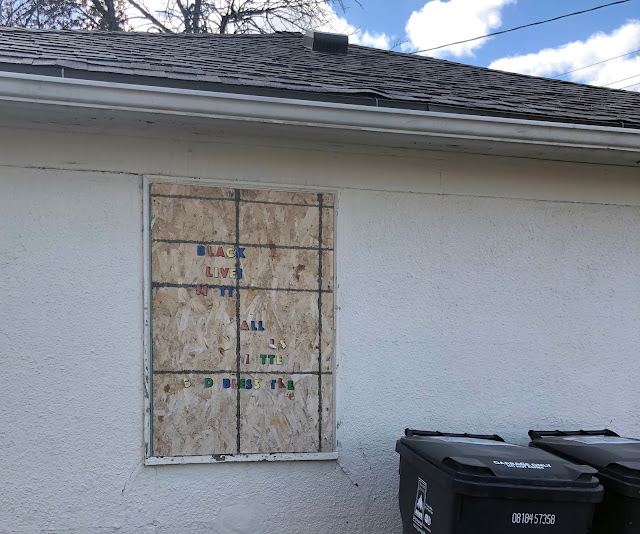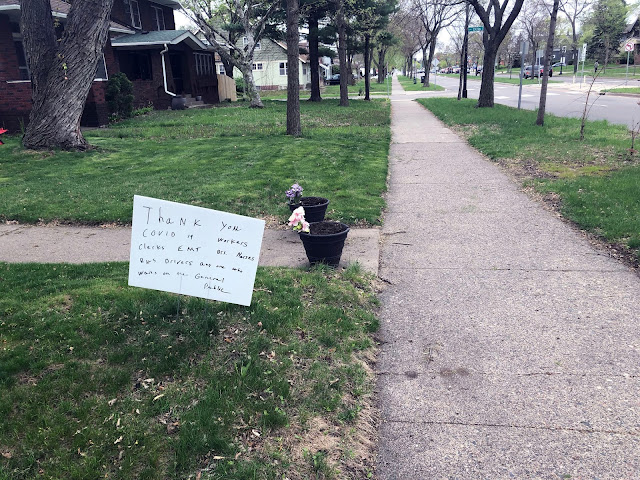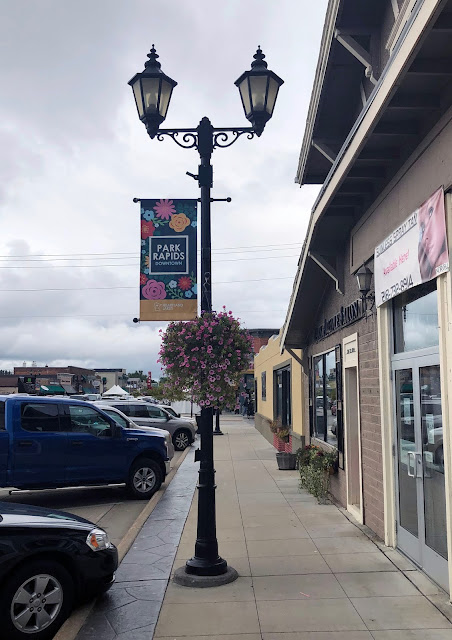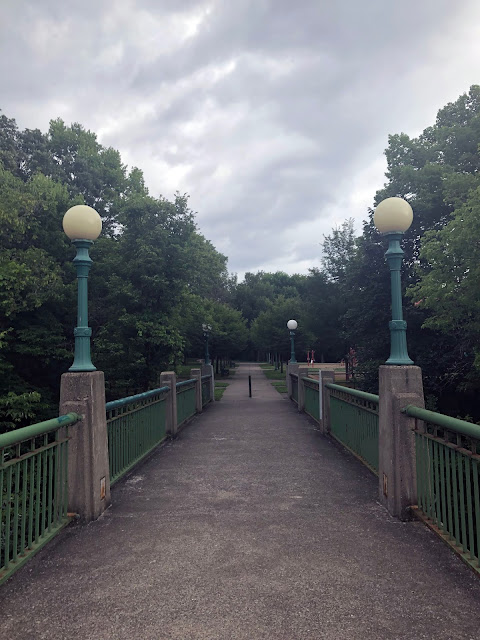 |
| [City regulations forced Metro State University to tear down three homes here and expand their parking lot, even though they did not need or want to do so.] |
Dear Commission:
To work towards equity in St. Paul, we need to eliminate parking minimums. Full elimination is the simplest choice on the table, and I think the Commission should approve it and send it to the City Council with strong support. Doing so will help our city become more equitable and resilient and a leader on social justice, affordable housing, and climate action.
Removing parking minimums will cost the city of St. Paul nothing, and in fact free up lots of time for city staff to address many larger problems. Here are six key reasons why we need to remove these requirements to help make our city more just, fair, and equitable.
1. All the people who do not drive
There are so many people who live in St. Paul who do not drive a car. Some cannot due to the high cost of ownership and maintenance, and others due to age, disability, or other barriers.
Each time we require a home or business to provide a parking spot, it adds a hidden tax burden for all of these people. We should not be asking the most vulnerable people in our city to subsidize those with the most wealth and mobility.
2. Reduce housing costs
Providing housing for people must always be a priority when compared to providing housing for cars. And yet requiring expensive parking spaces for every new home in the city adds a huge cost for renters and homeowners in St. Paul, something like $15,000 per parking space.
St. Paul should not have laws on the books that make our homes more expensive. In order to reduce housing costs across the board and across St. Paul, we need to give people the flexibility and choice about how to provide car storage. With home prices skyrocketing, this is one easy step the city can take to help out people struggling to afford a place to live
3. Make it easier for small businesses
Over the years, required parking minimums have surely stopped thousands of small businesses from getting off the ground in St. Paul. These requirements are a barrier to small business owners, and instead make it more likely that large corporations and chains will dominate our city's economy, as these companies can more easily afford to buy and maintain the required large parking lots. Forcing every entrepreneur to spend tens of thousands of extra dollars, or go through the time consuming process of land acquisition, keeps many business from starting up or expanding. This is especially true for communities of color trying to start businesses in St. Paul.
If we can get rid of this costly regulation, and make parking more flexible for entrepreneurs, we will make it easier for people across the city to start shops, restaurants, or other businesses that can help our city thrive and give people a fair chance at making their own livelihood.
4. Help the tax base
St. Paul needs a robust tax base to pay for basic services like libraries, rec centers, and to fix our streets. Parking lots are the lowest possible value for our city's land. Each time we knock down a home or business to pave another lot with asphalt, we are driving up the taxes for everyone else in the city.
It should not be city policy to make our land less valuable and to raise taxes on everyone. Ending these requirements will help increase the value of the city’s taxable land and make sure St. Paul can afford to keep up with its basic needs.
5. Climate change harms people in the Global South
Globally, it’s people living in poor countries that are going to experience the vast majority of impacts from climate change. By doing what we can in a globally privileged city like St. Paul to reduce our greenhouse gas pollution, we can begin to reduce the harms to the most vulnerable people around the world.
Each bit of carbon pollution we can eliminate will make it easier for families struggling to survive around the world. Requiring parking spaces is a hidden subsidy for the pollution that is displacing, starving, and impoverishing millions of people. Eliminating these harmful requirements is the least St. Paul can do to being to create a more equitable and just planet.
6. The city can focus on real problems
Having served on the Planning Commission for 9 years, I saw first hand out much city staff time is spent regulating parking minimums. We have dozens of cases per year where variances or other parking-minimum issues come up, and it takes hours and hours of time for our overburdened employees to study this.
There’s a long list of projects these staff could be working on instead of focusing on car storage, everything from economic development to affordable housing policies to incorporating more equitable practices in city approval processes. Let’s free our city workers to address more fundamental problems than requiring parking.
Thanks,
Bill Lindeke


























